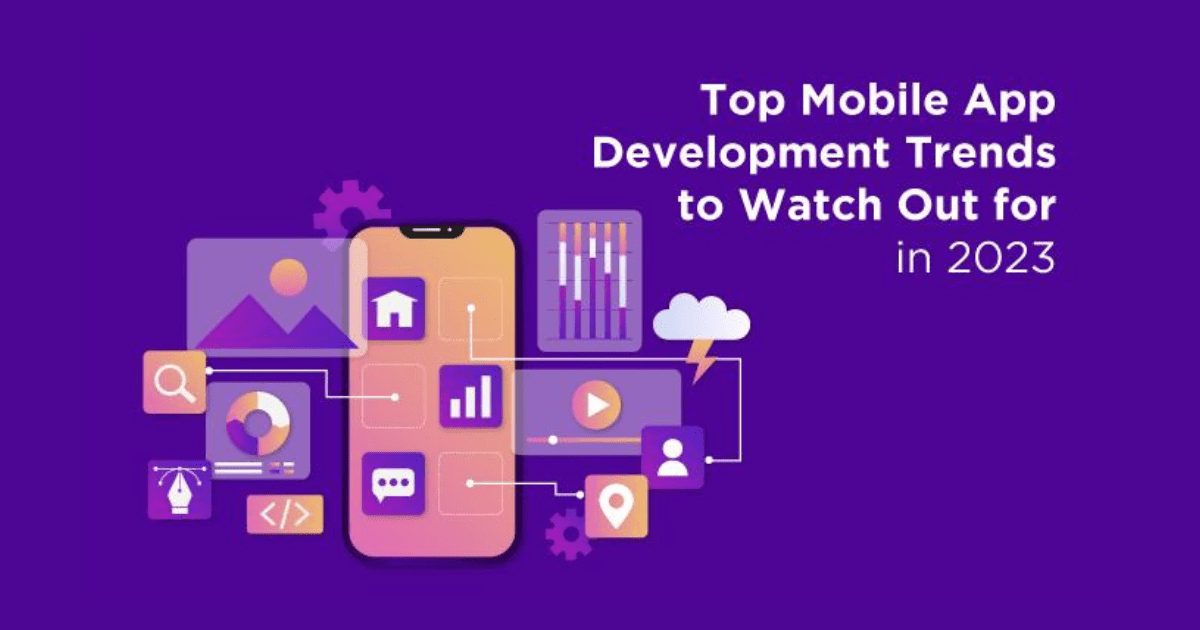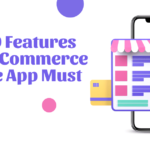Top Mobile App Development Trends to Watch Out for in 2026

Mobile Devices have become minicomputers where people spend 80% of the day. Hence, in today’s world, if you want to impress the market and attract a more significant number of people, you need to keep up with the demand and think out of the box. You need to strategize smartly to grow the audience for mobile marketing.
With the technology advancing at the speed of Cheetah, adopting the latest trends will meet your user’s expectations and leverage the opportunity to take an edge over your competitors. Thus, mentioned below are the top mobile app development trends to watch out for in 2026…
1. Voice First and Conversational UI
The Mobile App industry is undergoing technological changes, and this transformation is led by pioneering technologies such as Amazon Alexa or Apple’s series. They are gaining traction and driving the industry toward a voice-first future. Asking them questions by typing is becoming ancient. However, conversational UI is a different story altogether.
AI-powered text-based apps are rising because these new chatbots offer a more interactive and intuitive way of interacting with technology than their traditional counterparts. They do not answer like robots; instead, they answer in human–like manner. It saves a huge chunk for companies on the workforce front.
2. Wearable Devices
If you belong to the 21st century, there is hardly a chance that you mustn’t have heard about wearable devices like smartwatches, VR headsets, smart rings, and even smart glasses. Thus, if you plan to develop a mobile app for your brand/business, you must integrate it with wearable devices.
If a person cannot check out your app on his smart watch and needs to pick up his phone, God forbid, he will uninstall it in no time. Wearables perform the same as phones, only they are more portable, which makes them more convenient. With wearables, a healthy lifestyle has become popular. At the same time, businesses have a new way to boost their revenue.
3. Blockchain Technology
Blockchain Technology is becoming increasingly popular in healthcare, finance, real estate, and education. Blockchain supports digital currency, such as Litecoin, Ethereum, and Bitcoin, enabling a secure and transparent payment process, thus reducing the necessity of a middleman.
With data breaches happening worldwide, people are scared to download apps. That is when blockchain technology comes to the rescue. It increases data privacy and provides Z+ security such that people will start trusting the apps again. Its encryption technique is considered impassable since all the data is encoded and saved with a cryptographic hash.
4. AI-Integrated apps
The most prominent example of AI integrated with the mobile apps Apple’s Alexa. You can make Alexa do and say anything as long as it makes coherent sense. The most significant flex about AI-integrated apps is that they will be able to create the mobile app without instructions if the correct data from the previous app is entered.
AI can also be used to imitate user behavior by following provided patterns. Like Amazon offers recommendations based on your searches and purchases if the necessary data is fed into our mobiles and control all our possessions with apps having AI integrated into them. It won’t be long before AI will be able to understand what is going on in your mind and provide solutions in no time.
5. 5G
During COVID, which doesn’t feel like long ago, faster internet connectivity had become a necessity and not a luxury. Everyone confined to their homes needed the Internet to go on with their lives. Hence 5G was the need of an hour for faster downloads and better streaming.
5G means 5th Generation mobile network, which is designed to connect virtually everyone and everything together, including machines, objects, and devices. It is a wireless technology with higher multi-Gbps peak data speeds, ultra-low latency, more reliability, massive network capacity, increased availability, and a more uniform user experience for a more significant number of users
6. Cloud-Driven Mobile Apps
Cloud Driven Mobile Apps have a huge advantage over traditional native apps. All cloud-based mobile apps depend on the power of cloud computing to deliver applications to mobile devices across the Internet. With cloud-driven apps, as long as a user has an Internet connection and a mobile device, they can access the app at any time. There are three types of cloud-driven apps:
- Software as a Service (SaaS) – One of the most common and popular cloud-based services is SaaS. It is often attractive to the users because they do not have to purchase the software license and concern themselves with storage issues. Instead, users can easily access the app or files on the Internet.
- Platform as a Service (PaaS) – A PaaS-based cloud app only requires application code from the user’s side. It removes the requirement to oversee hardware and operating tasks like equipment procurement and software maintenance.
- Infrastructure as a Service (IaaS) – With IaaS based cloud model app, the third-party app provides infrastructure and support, along with the in-app support and the middleware.
7. Instant Apps
Instant apps are becoming a massive success in the market, and the need for mobile has never seen a better time. It is like trying on a piece of cloth before buying it or going on a test drive before purchasing the car. Yes, it may sound strange, but you can try the mobile app before downloading it…how cool is that?
Instant apps will give you a taste of a particular app without you having to share any kind of information with it or even download it. You, as a user, will be able to use the essential functions without the app not even taking up a byte of your memory or causing any system interruption. And this is why it is a convenient arrangement for most people.
8. Low Code/No Code App Development
These days the big shots of the markets and even the smaller organizations have immense pressure to deliver applications faster. It has led to the increasing popularity of low-code/no-code tools as it removed the complexity that goes into building an application or software. These platforms have made it cheaper to develop an application or software, allowing them to be more cost-effective as we all know that hiring a developer in the US, or any other country for that matter, is expensive.
Conclusion:
Mobile app Development can get tricky if you are unaware of the latest trends in the market. Thus, it is better to hire experts for the same. They will not only suggest what is good for your business and what won’t work out, but they will also take the limitations of the current trends and make it work in your favor.
Ready to Get Started?
Your Details will be Kept confidential. Required fields are marked *




